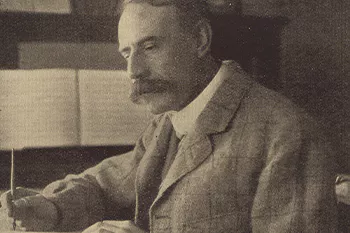A note from the composer...
There are so many distinctive anniversaries which commemorateimportant British events in 2015. Andy Rashleigh’s narrationdraws them all together and excerpts from his words provide thetitles for each musical section, also for the work itself. The composer’s challenge is toreflect on these collectively.
A Torch that burns across the World: Magna Carta (1215) commemoratesthe legacy of the Magna Carta and its complexity, depicted with a certaingrandeur but also recognition of ‘Bad King John’.
Grace and Myght of Chyvalry: Agincourt (1415) drawson the words and music of the traditional ‘Agincourt Carol’, featuring cornets as Englishlongbows and the lower brass as the French cavalry.
One Young Drummer Boy: Waterloo (1815) reflects the initiative in the battle swinging this way and that after the first attack fromwhich a lone drummer boy survived.
Sustain a Hungry Nation: the Women’s Institute in WW1 (1915) featureslyrical echoes of a Welsh folk tune as well as Parry’s ‘Jerusalem’, sosynonymous with the WI.
The Tribe: Churchill and WWII (1940, 1945, 1965) recognises thedeath of Churchill
(1965) and commemorates WWII events with rhythms inspired by his ‘FinestHour’ speeches (1940). It recalls the Battle of Britain, touches on the role of the Turing Bombe’s first Enigma code breakthroughat Bletchley Park (1940) and of course, celebrates with the people on VE Day(1945).
Their Songs of Freedom traces and commemorates many different roles – whether battleswon, the role of the Women’s Institute or that of a great leader. Themusic seeks to be a tribute to those involved who – in their distinctive ways –helped change the course of our British history over 800 years.
Liz Lane and Andy Rashleigh, 2015
![Serenata [world premiere in the wind band version] | The Royal Marines Band](https://cdn.prod.website-files.com/5cb49828bba38cfab910a45a/697113ac122b7add512bab2f_Screenshot%202026-01-21%20175249.png)

